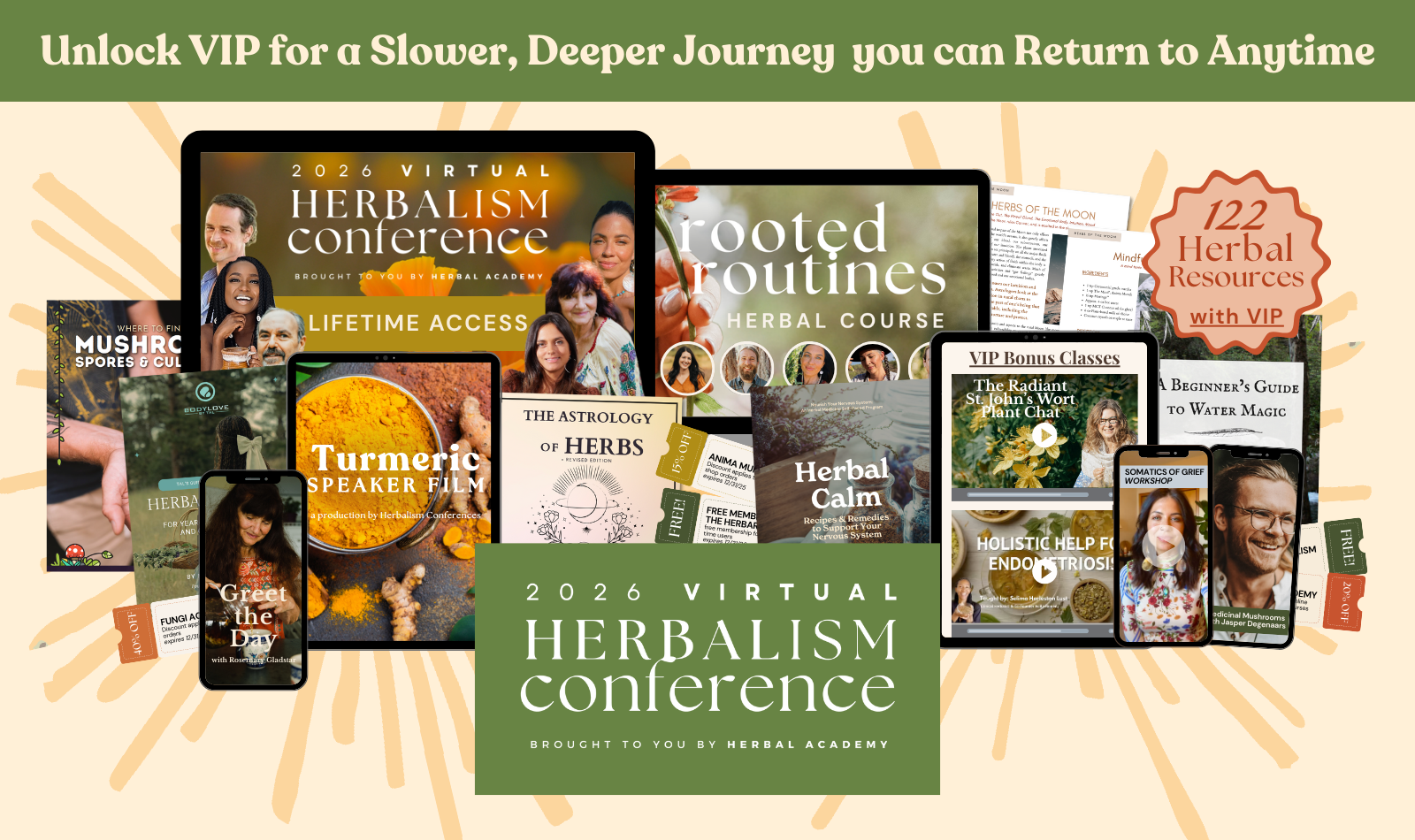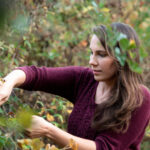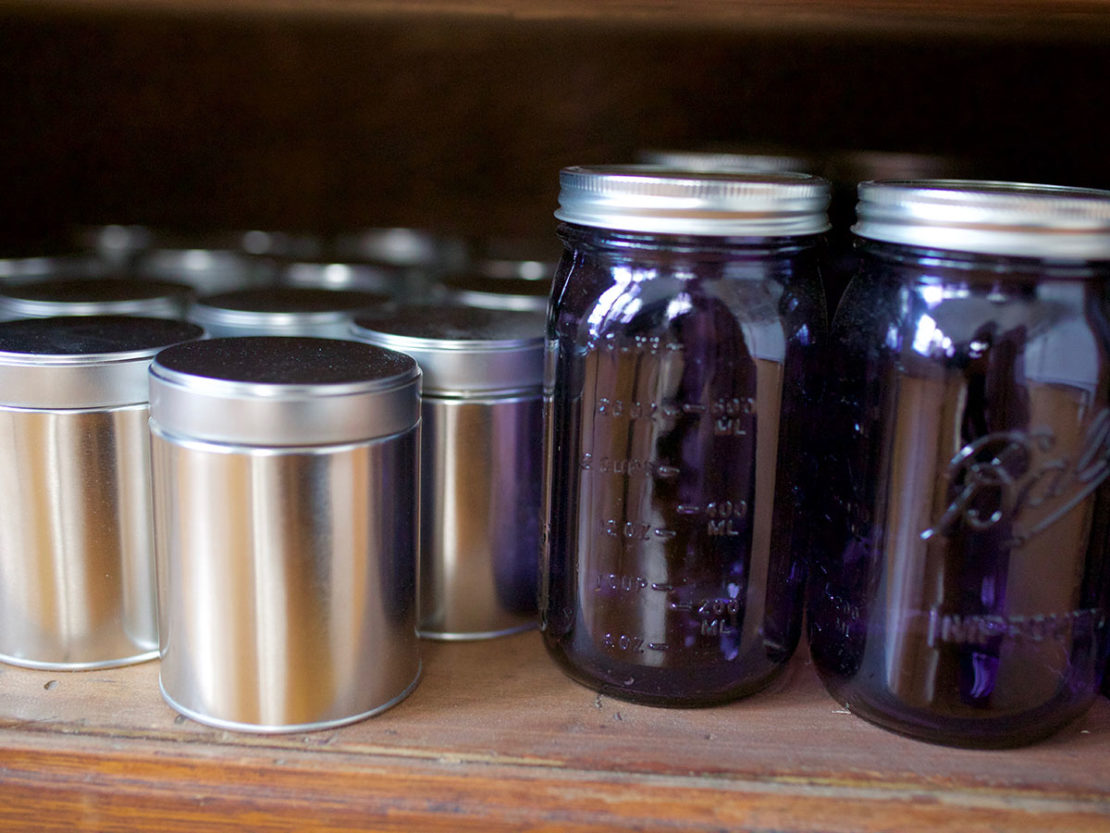
14 Must-Have Supplies For Herbalists (Plus A Free Printable Herbal Toolkit Supply List)
Whether you’re brand new to herbalism or you’re trying to set up your home apothecary, you’ll want to stock up on some particular supplies to support your work with herbs. But which ones are necessary? Wouldn’t it be nice to have a checklist of herbal supplies needed to set up your herbal workstation?
We think so, which is why we’ve pulled together a list of 14 supplies that are most helpful to herbalists. We’ve even included a free Herbal Toolkit Supply List printable for you at the end of the post so you can better keep track of your supplies (the ones you have on hand or those you need to stock up on).
14 Supplies For Herbalists
Herbs
We’re pretty sure this one is obvious. Every herbalist needs herbs to work with! Herbs can be found growing right out in your backyard or you may prefer to purchase them from local herb shops or reputable businesses online. Either way, you will need a variety of herbs—which ones will depend on your interests and your wellness needs.
If you’re looking for a good place to start your herb collection, the Herbal Starter Kit can help! It comes with up to 18 sustainably-sourced herbs that can be used in a many different recipes. The Herbal Academy developed this stand-alone kit based on the herbs that are talked about most throughout the Introductory and Intermediate Herbal courses—so it’s perfect for getting started!
Solvents
A wide array of solvents will be useful in making a variety of common herbal preparations such as syrups, tinctures, and infused oils. Carrier oils like olive oil, sweet almond, and coconut oils are great for making infused oils and salves. Various alcohols with varying alcohol percentages such as vodka, gin, and high-proof alcohol are the basis for making herbal tinctures. Vinegar (e.g., apple cider or white wine vinegar), glycerin, and honey (raw and local, when possible!) are often used in herbal recipes as well.
Wax and Butter
If you’re planning on making salves, creams, or body butters, having a variety of waxes and different kinds of butters on hand will be helpful. Beeswax is the most commonly used wax, but there are other vegan varieties like candelilla, carnauba, and soy. Butters may include cocoa, shea, avocado, kokum, etc.
Note that the butters and oils discussed above have shelf lives in the several months to 1-2 years range, so they won’t keep indefinitely; therefore, it may be most cost effective and conscientious to purchase smaller quantities with particular recipes in mind.
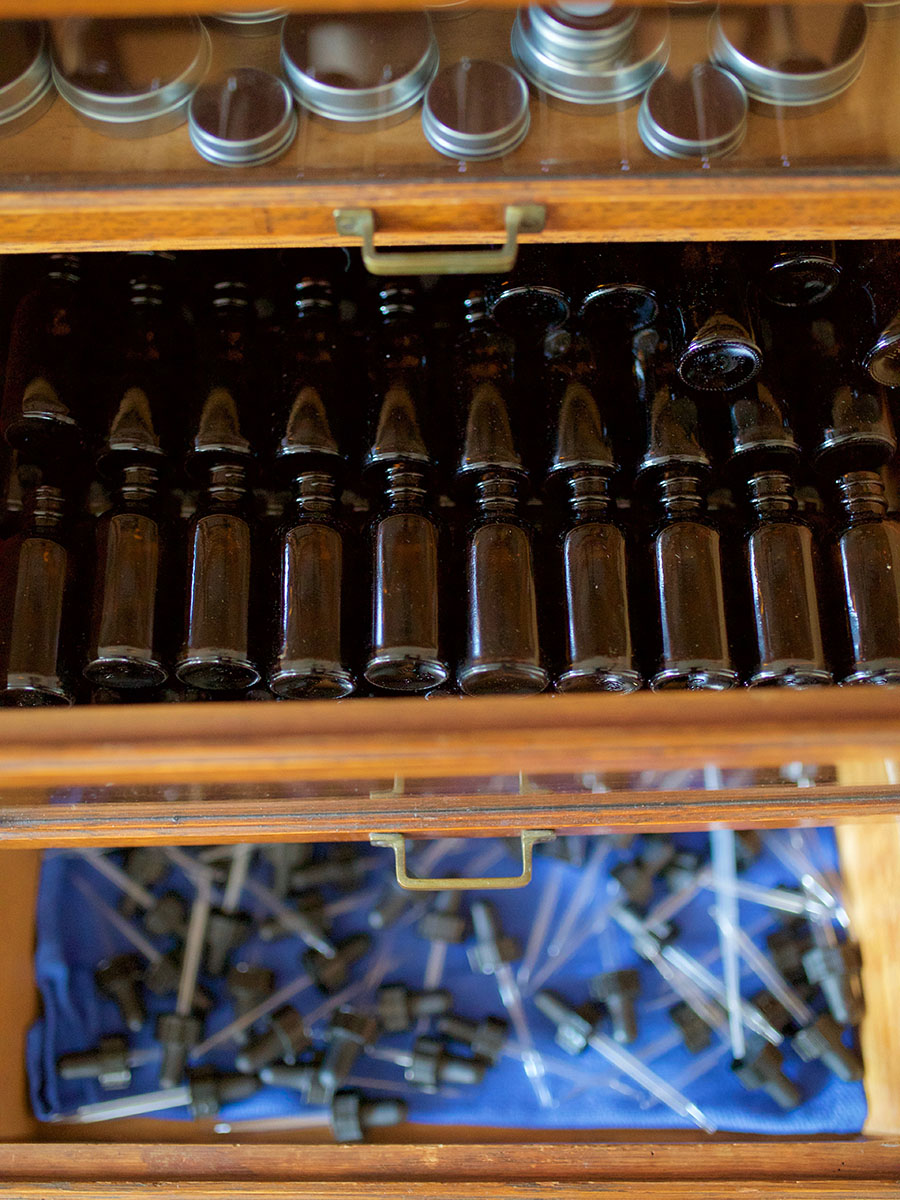
Storage Containers
Storage containers are a necessity when it comes to storing herbs and any herbal products you create. Dried herbs can be stored in glass jars such as Mason jars while finished herbal products can be stored in various sized glass bottles, jars, and tins. These containers can be used in many different ways. They’re not only great for storing your supplies and preparations in but for gift-giving as well. (Note that reusing jars from the grocery store that formerly housed spaghetti sauce, jam, olives, or herbs is a great money-saving tip— as long as they are thoroughly cleaned and sterilized!)
You can find tincture bottles, spray bottles, and tins in the Goods Shop. And don’t forget the labels!
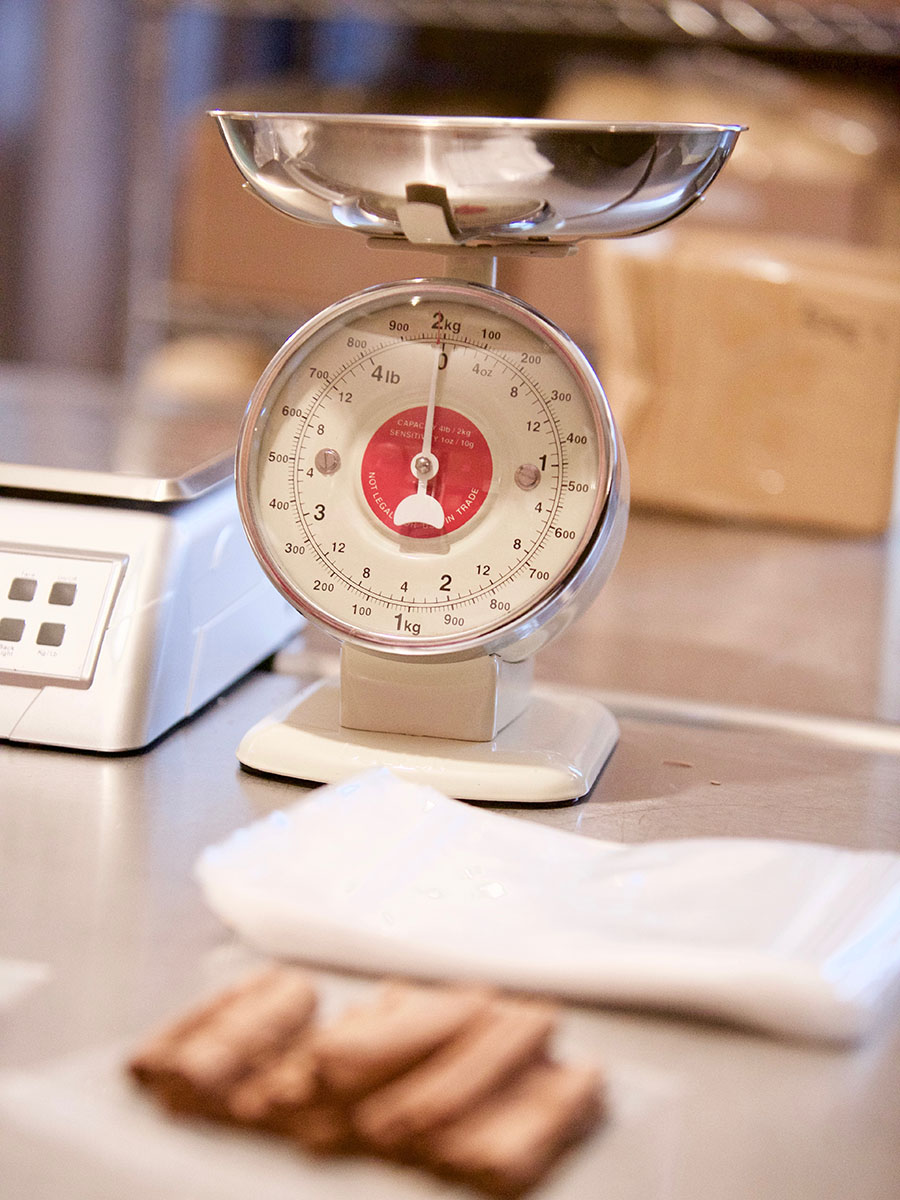
Kitchen Scale
A kitchen scale will come in handy any time you go to weigh herbs for herbal preparations that require precise measurements such as weight-to-volume tinctures. Be sure to look for a scale that weighs in grams and ounces.
Mixing Bowls and Saucepans
Whether you’re measuring and weighing herbs, storing things, or mixing ingredients together, an assortment of different sized bowls from small to large will be a necessity. You’ll also want to have various sizes of saucepans available for infusing and melting things. We recommend glass, stone, enamel-coated, or stainless steel bowls and pans.
Measuring Utensils
Glass measuring cups, dry measuring cups, measuring spoons, and graduated cylinders will all be necessary when you need to measure out various amounts of herbs, solvents, waxes, and more for any recipes you want to make. You probably already have these in your kitchen, minus perhaps the graduated cylinder, which you will need only if measuring very accurate amounts of solvents for tinctures.
Kitchen Utensils
Speaking of making recipes, having a supply of spoons, spatulas, knives, kitchen scissors, and cutting boards on hand will make snipping, chopping, whipping, and scraping ingredients into the necessary sizes and textures all the easier. A mortar and pestle is a lovely and effective tool for grinding and powdering fresh and dried herbs. A spice grinder is a great option as well. Don’t forget funnels, strainers, and cheesecloth for straining and bottling finished products.
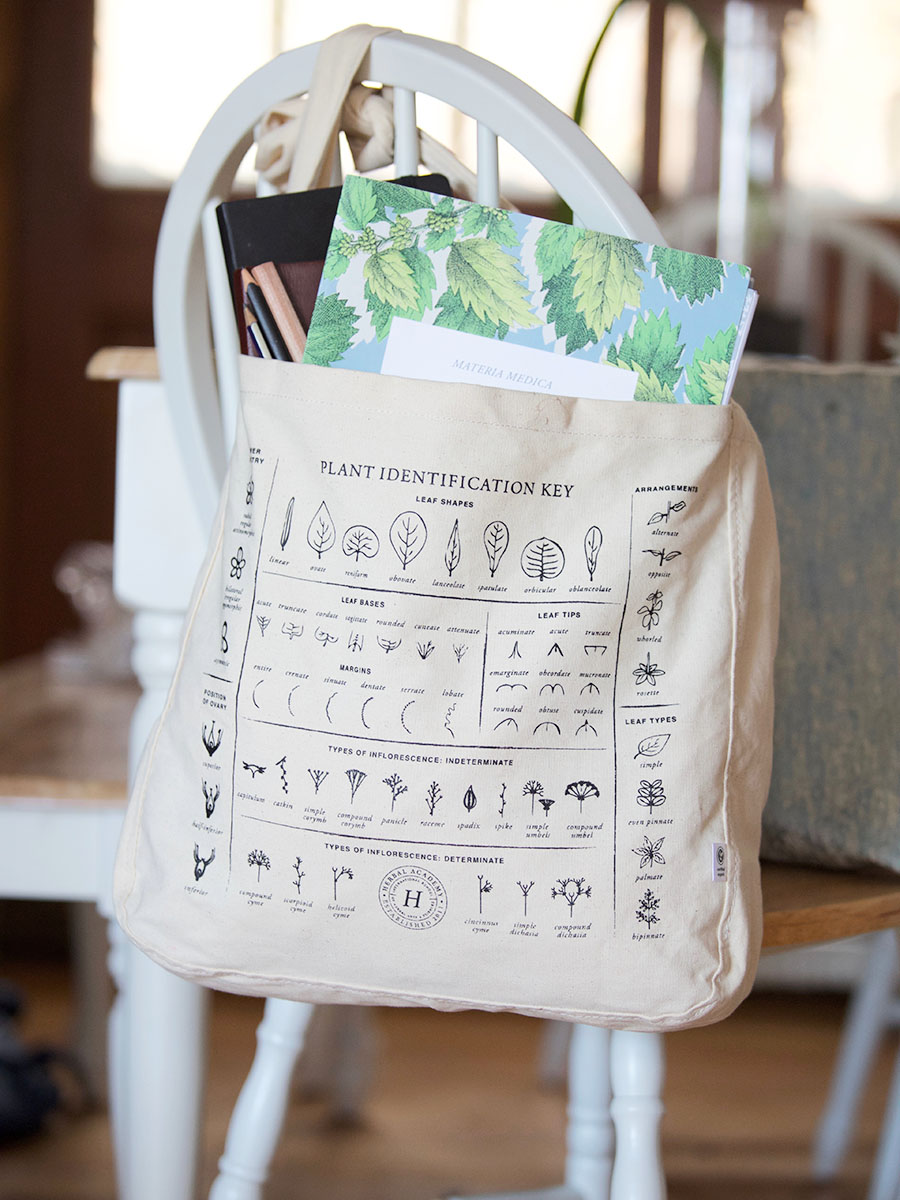
Foraging Bag
If you plan on doing any herbal wildcrafting, you’re going to need something to put your harvested plants and mushrooms in. A canvas or cotton bag that’s lightweight and has pockets for carrying things is a great tool to have at your fingertips.
Check out the Plant Identification Tote Bag in the Goods Shop. It makes a perfect foraging bag!
Scissors, Shears, Knives, and A Hand Lens
Speaking of foraging, having a good pair of foraging scissors tucked into your bag is a must for clipping flowers, stems, and small branches. For larger things like roots and thicker branches, a pair of pruning shears will be needed, and a good sharp pocket knife will be necessary for harvesting bark. Don’t forget a hand lens for getting a close-up look at the plant you’re harvesting.
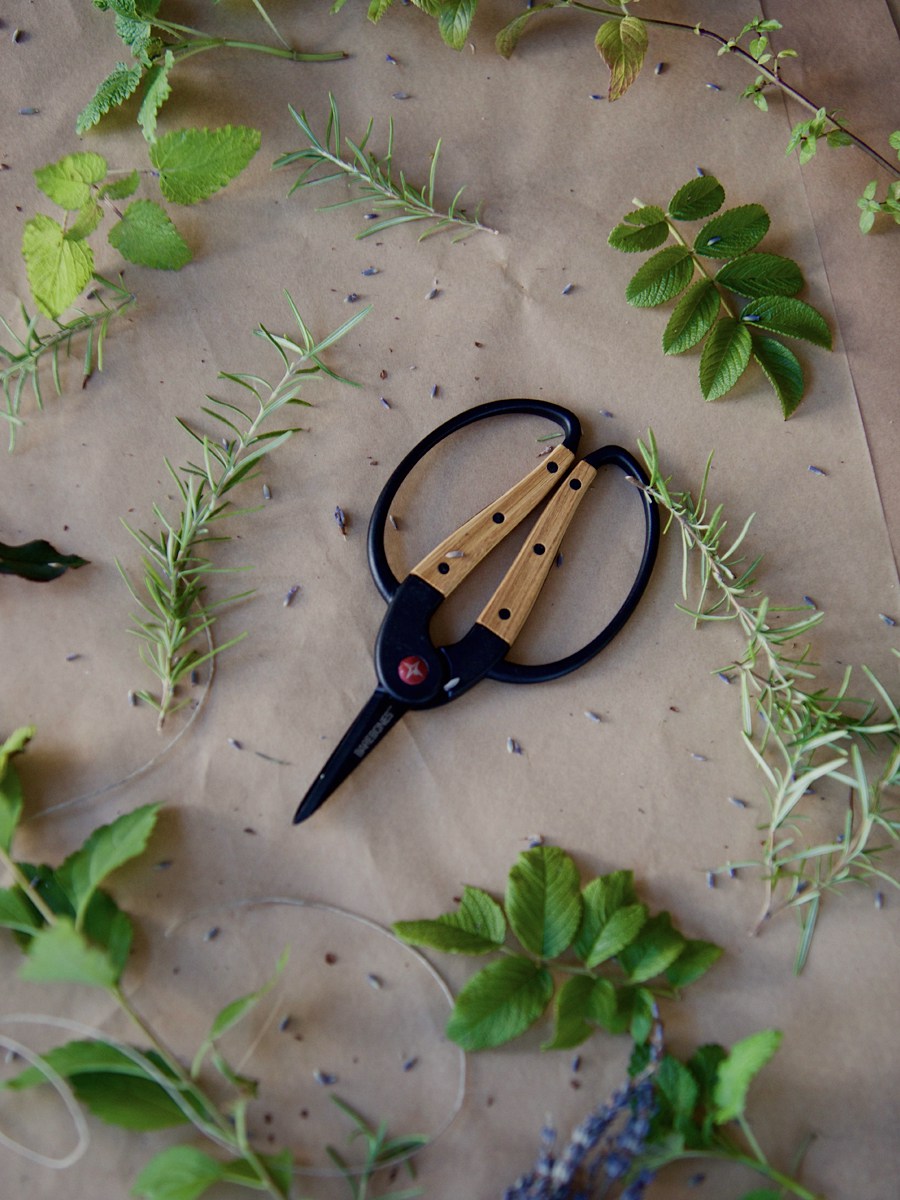
Foraging scissors can be found in the Academy’s Goods Shop.
Notebook
As any herbalist knows, having a variety of notebooks on hand is a must for writing down thoughts, ideas, lessons learned, recipes, and anything else you want to remember. No matter how many times we tell ourselves we’ll remember our latest recipe success (or failure), the truth is that unless we write it down, it may be lost forever!
We love moleskine notebooks, but we also like to keep a 3-ring binder with page dividers and blank paper on hand as well for collecting various notes, handouts, or recipes all in one place.
Writing Utensils
Pens, paper, colored pencils—even watercolors are great supplies to have on hand for jotting down information or to use when creating your herbal materia medica. You can use many of these supplies to sketch, draw, and paint parts of a plant you’re studying as a way to enhance your herbal studies.
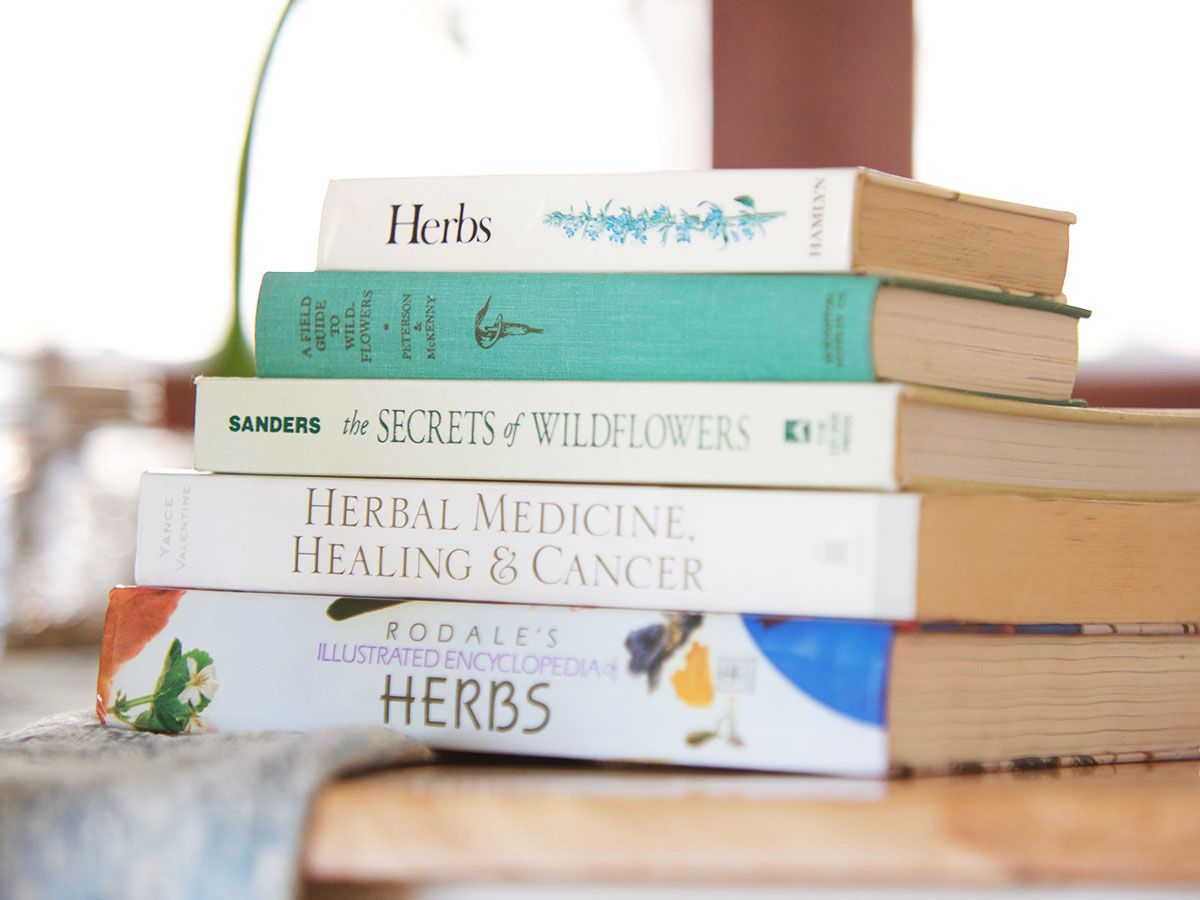
Books
Books are most certainly a must-have supply, and as many herbalists would agree, you can never have too many! There are herbal books galore for so many different aspects of herbalism—foraging books, books for beginners, books for children’s health, advanced study books, old-time herbals, and more.
Check out the Herbal Bookshelf to find the next herbal book that will make its way into your herbal library!
Computer
In the modern world we live in, having a computer (or access to one) often feels like a necessity. Computers help quicken research and communication with others, and they can even help one to pursue an education—herbalism included.
If you’re interested in pursuing an online herbal education, be sure to check out the many herbal courses, short courses, and paths the Herbal Academy offers. And don’t forget—all herbal courses and paths are on sale until December 31st!
A Quick Word On Sourcing Sustainable Products
Sustainability is an important issue, but it’s not so easy to pinpoint. Sustainability really comes down to using resources wisely, in a way that ensures they’re around for years to come, and ensuring that production practices are protective of the health of plants, their ecosystem, the land, and people.
Here’s the thing, though. Sustainability of a particular resource isn’t something that’s set in stone. It often changes depending on a variety of factors such as location, weather, farming, and harvesting practices, etc.
Take frankincense essential oil (Boswellia carterii) for example. This essential oil is an at-risk essential oil, but as far as we know, this is only true for Boswellia carterii sourced from Somalia due to reports of over-harvesting. Boswellia carterii from other locations are not known to be at risk at this time (Tisserand, 2017).
As you can see, the sustainability of a plant or product ebbs and flows based on a variety of factors. The point is to do your research and only purchase supplies from companies that are committed to sustainable sourcing.
Keep Your Supplies Organized With This FREE Printable Herbal Toolkit Supply List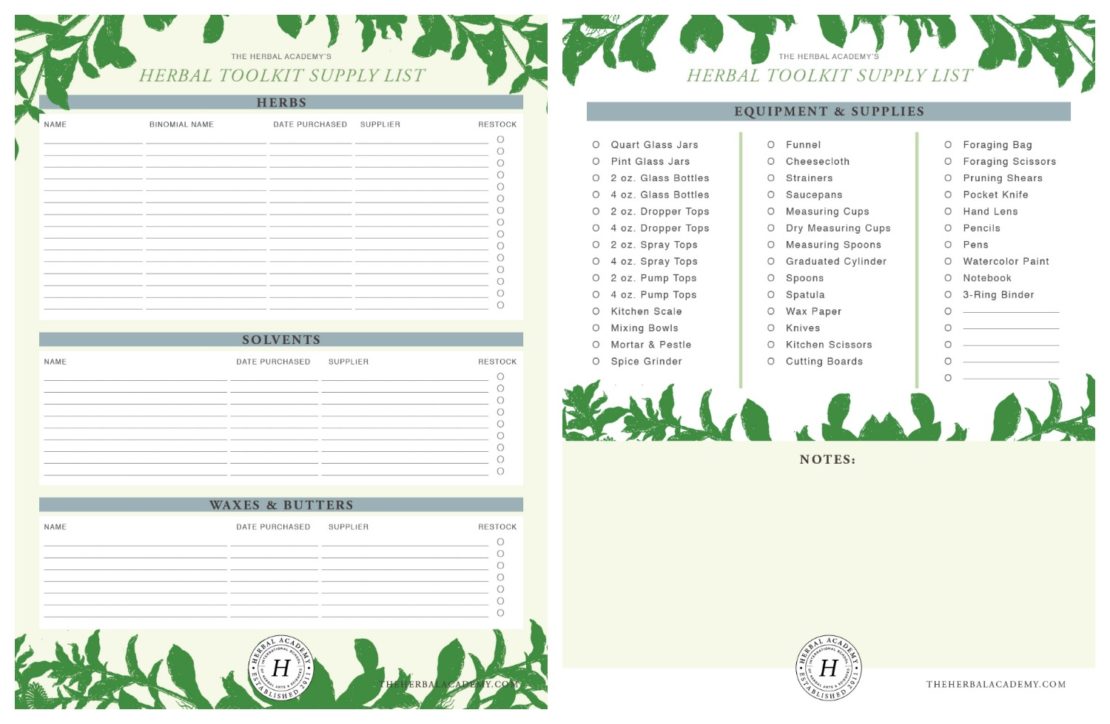
Because we want to see you succeed in your herbal journey, we’ve created a free printable Herbal Toolkit Supply List to help you stay organized. Simply click the link below to download a PDF file to your computer, print your supply list, and put it in a notebook or tape it to the inside of the closet, cabinet, or bin where you keep your herbal supplies located. Enjoy!
Click Here to get your FREE printable
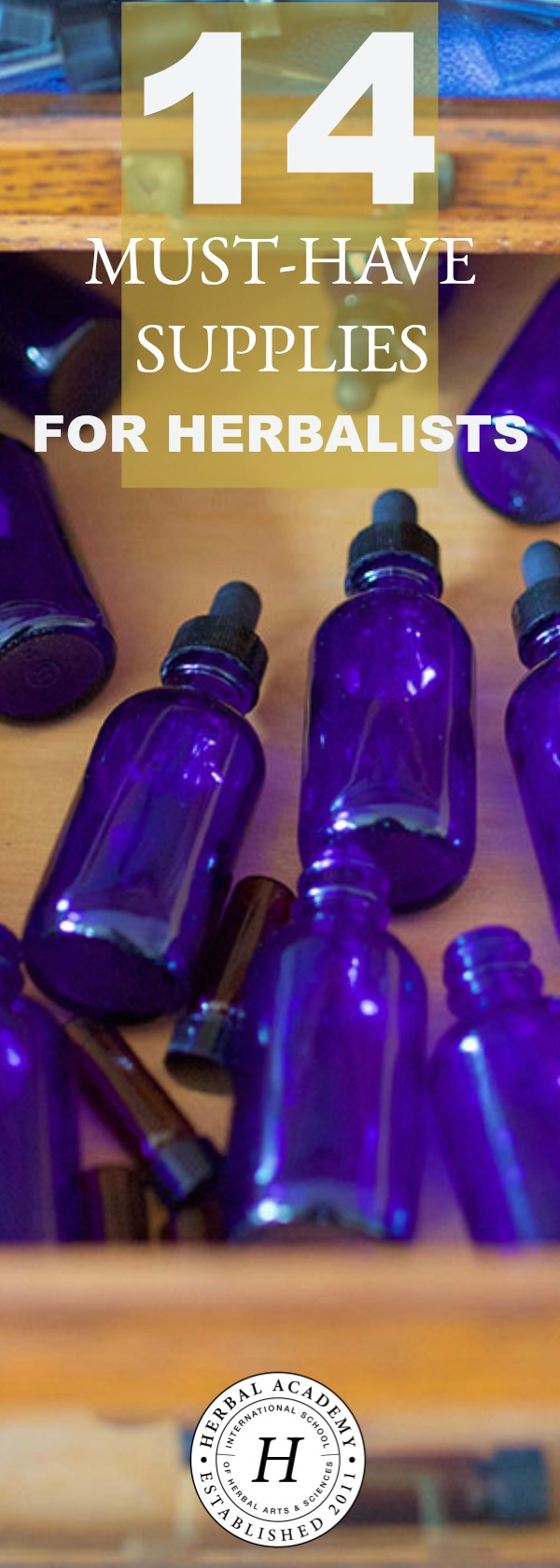
REFERENCES
Tisserand, R. (2017). Spikenard and sustainability. [Blog post]. Retrieved from http://tisserandinstitute.org/spikenard-sustainability/

